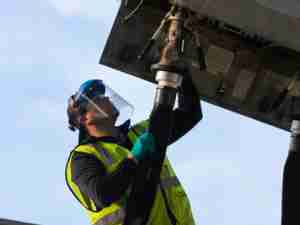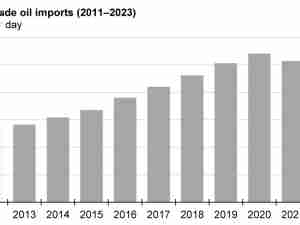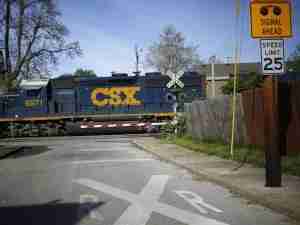Canada silent as Keystone vote nears, Obama criticizes project
By: Reuters | Nov 18 2014 at 04:38 PM | Intermodal
Canada kept quiet as debate over the Keystone XL pipeline unexpectedly raced through the U.S. Congress because it does not want to inflame a heavily politicized issue, two sources familiar with the matter said on Tuesday.
Canada, which has loudly backed TransCanada Corp’s proposed project in the past, also had no response to unusually sharp words by U.S. President Barack Obama who said last week Canada wanted to “pump their oil, send it through our land, down to the Gulf, where it will be sold everywhere else.”
The U.S. Senate prepared for a Tuesday vote that could send a bill approving Keystone to Obama, who is set to veto it. A version of the bill sailed through the House of Representatives last week.
The sources said Canada’s Conservative government realized Obama was under a lot of pressure over what had become a largely domestic issue and should therefore let U.S. legislators make the arguments for the project.
“The best thing (Canada) can do is sit back and not do anything to make the situation more politically fraught,” said one of the sources who is familiar with Ottawa’s behind-the-scenes campaign.
Canada had dialed back its public hectoring over the issue in recent months in favor of quiet diplomacy, with officials under instruction to raise the matter privately every time they met their U.S. counterparts. In Washington, diplomats have been lobbying influence-makers for months.
The 1,200-mile (1,930-km) pipeline is designed to carry 830,000 barrels a day from the oil sands of Alberta in Western Canada to the U.S. Gulf Coast.
U.S. supporters of the pipeline, as well as the Canadian government, say it will create thousands of jobs and secure a stable source of energy. Opponents say tar sands oil would cause Canadian greenhouse gas emissions to soar and also worry about the effects of a spill.
“This is about politics and has been for a number of years,” said Rob Merrifield, Alberta’s envoy to Washington and one of the few Canadians speaking publicly about the lobbying campaign.
“That’s why we just sit back and allow the politics in America to be played out, albeit we drive the message about why it (the pipeline) is important,” he told CTV on Tuesday.
Canada had pressured the U.S. administration for years before the change in tone. Indeed, Foreign Minister John Baird said in Washington earlier this year that “the time for a decision on Keystone is now, even if it’s not the right one.”
Baird’s hard-line approach “solves nothing,” one person with direct knowledge of how Ottawa was handling the pipeline issue told Reuters, citing the need to be more diplomatic. Ties between Canadian Prime Minister Stephen Harper and Obama have improved notably in recent months.
A spokesman for Harper declined to directly address Obama’s remarks about the pipeline mainly serving Canadian interests.
One of the few critical public reactions came from TransCanada Chief Executive Russ Girling, who said Obama was wrong to say Keystone XL would be only an export pipeline.
“This project is truly in the national interest of America,” he said in a statement. “It is disappointing that since 2008, almost 10,000 miles of oil pipelines have been constructed in the United States - the equivalent of eight Keystone XL pipelines - and yet our project sits idle.”
In another explanation for the less-vocal Canadian approach, well-placed Conservative sources say some members of Harper’s Cabinet are convinced Obama will either veto the project once he has a final State Department verdict on whether it can go ahead or will punt the decision to the next President.
In addition, new lines to carry crude to Canada’s Atlantic and Pacific coasts are in the works and Keystone XL is no longer seen as critical to the health of Canadian oil producers.







_A_-_28de80_-_38f408a0a1c601cdbf9fe70c9d30a28084a5da3d_lqip.jpg)

